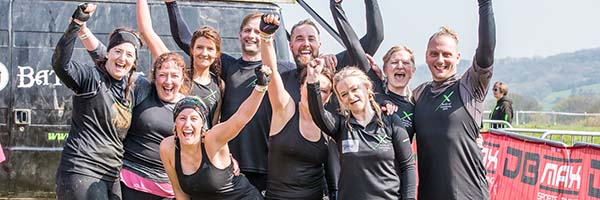While none of us like to admit it (me included), as we age we must adapt our training for obstacle course races given the changes in our bodies. As we hit middle age, a more considered training plan is needed (gone are the days of just relentlessly smashing ourselves and eating rubbish!) and the importance of recovery increases. Now, it’s all abut focusing on longevity and injury prevention.
Here’s how:
1. Prioritise Recovery and Mobility
Incorporate flexibility and mobility routines, such as yoga or dynamic stretching to maintain joint health and reduce the risk of injury.
Allow more recovery time between intense workouts to facilitate muscle repair and avoid overtraining. Take a deep dive into recovery and injury prevention.
2. Strength Training with a Focus on Functional Fitness
Emphasise compound movements (e.g., squats, deadlifts, and pull-ups) to build strength that supports everyday activities and OCR-specific challenges. Include resistance training 2-3 times a week, focusing on controlled, quality reps rather than lifting heavy weights. Read more about strength training.
3. Adjust Intensity and Volume Gradually
Gradually increase training volume and intensity to avoid excessive strain on the body. Opt for interval training over long, high-intensity sessions, which can be taxing.
Listen to your body; signs of fatigue or pain should be addressed promptly with adjustments to the training load.
4. Incorporate Cardiovascular Fitness
Balance running with low-impact cardio options like cycling, swimming or rowing to protect joints while building endurance.
Mix steady-state cardio with interval runs to improve both aerobic capacity and sprint performance.
5. Nutrition and Hydration
Adjust dietary intake to support muscle recovery and energy needs, focusing on protein-rich foods, healthy fats, and hydration. We wrote all about protein requirements for OCR athletes here.
Consider consulting with a nutritionist to fine-tune a diet that meets your specific training and health requirements.
6. Mindset and Goal Setting
Set realistic goals that are tailored to your fitness level and experience, and celebrate small milestones along the way. Engage in mental resilience training, such as visualisation techniques or mindfulness to stay motivated and focused.
7. Regular Health Check-Ups
Maintain regular health check-ups and monitor markers like heart rate and blood pressure to ensure that your training aligns with your overall health status.
Pay attention to any new or unusual symptoms that could indicate the need for medical guidance or a change in your training routine.
By adapting training strategies to account for the natural changes that come with age, those 40 and above can continue to excel in OCRs with a sustainable, enjoyable, and safe approach.




